The Front (1976)
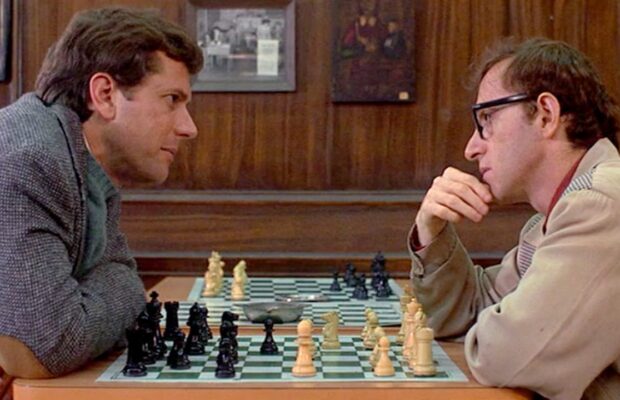
Toronto Film Society presented The Front (1976) on Monday, August 22, 1983 in a double bill with The Day of the Locust as part of the Season 36 Summer Series, Programme 9.
Production Company: Columbia. Executive Producer: Charles Joffe. Producer: Martin Ritt. Associate Producer: Robert Greenhut. Director: Martin Ritt. Assistant Directors: Peter Scoppa, Ralph Singleton. Sound Editor: John Newman. Screenplay: Walter Bernstein. Photography: Michael Chapman. Music: Dave Grusin. Song: “Young at Heart,” sung by Frank Sinatra.
Cast: Woody Allen (Howard Prince), Zero Mostel (Heckey Brown), Herschel Bernardi (Phil Sussman), Michael Murphy (Alfred Miller), Andrea Marcovicci (Florence Barrett), Remak Ramsay (Hennessy), Marvin Lichterman (Myer Prince), Lloyd Gough (Delaney), David Margulies (Phelps), Joshua Shelley (Sam), Norman Rose (Howard’s Attorney), Charles Kimbrough (Committee Counsellor), M. Josef Sommer (Committee Chairman), Danny Aiello (Danny La Gattuta).
The scene is New York in the early Fifties. The man is Howard Prince, a restaurant cashier and small-time bookmaker. He is approached by old school-friend Alfred Miller, a television writer who has been blacklisted for his political sympathies, and is asked if he will “front” Miller’s scripts for a television network; that is, submit them under his own name. Howard agrees, for a 10% commission on each script. Producer Phil Sussman and story editor Florence Barrett are impressed by Howard’s first “offering,” and he is soon embarked both on fronting scripts for other authors, and on an affair with Florence.
Howard, however, soon becomes the object of an investigation himself, let by the host of the series for which Howard is fronting. And that host, comedian Heckey Brown, who loses his job because of his political leanings, has the chance to earn the job back by gathering suspicious evidence against Howard. As tensions mount, Heckey decides, rather than continue to spy on Howard, that he will commit suicide.
Now it is Howard who is ordered to appear before the House UnAmerican Activities Committee. Caught in the midst of the tangled web, Howard loses Florence, confesses he is not the writer, refuses to cooperate with the Committee, and is arrested.
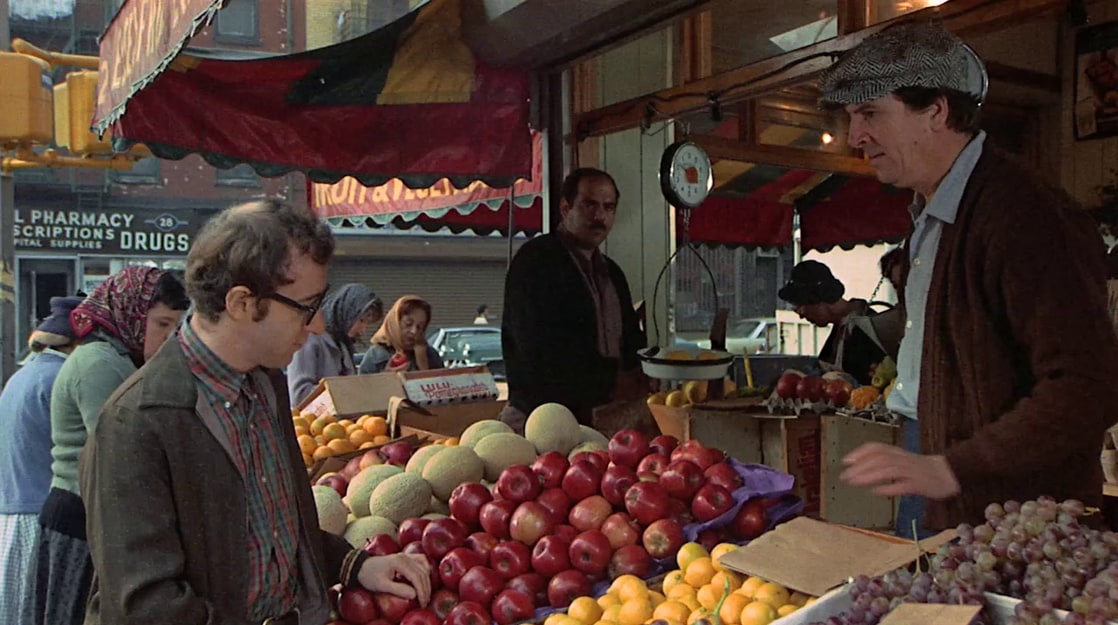
The Front, on the surface, seems to be a story about the problems suffered by many people working in American show business during the period of McCarthyism in the 1950s. The plot is straightforward, the situation quite horrific. The blacklist was almost impossible to fight as an individual, because no one in authority would admit that it existed. The television networks and film studios went along with it, apparently because that was easier than resisting.
Director Martin Ritt has done his job with assurance and flair, and certainly is familiar with the situation. Ritt, along with writer Walter Bernstein and Zero Mostel, was himself blacklisted inthe Fifties.
For Wood Allen, the film was a new direction, as he moved into his first straight dramatic role. And, for director Ritt, the use of Allen gave the chance to reach audiences who were unaware of this tragic period of history.
Not all who saw, liked what they saw. It was interesting that the focus was put, by a movie, on its arch-rival, television, rather than looking at its own house. And, the wit of Mostel and Allen at times softens the actual situation.
The Front, along with the earlier The Way We Were, looked at the blacklisting problem. But many feel both films provided only a clouded look, hampered by nostalgia, romantic frills, or maybe even a reluctance to “bite the hand that was again feeding.”
Notes by Bill Sturrup
References: The Loser Takes All, Maurice Yacowar
Films and Filming, Feb. 1977
Monthly Film Bulletin, Dec. 1976
Films in Review, Nov. 1976

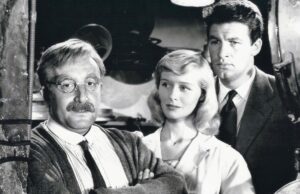
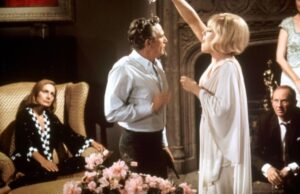
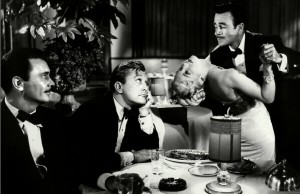






Leave a Reply